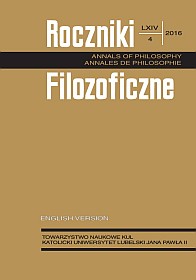Varieties of Humanism for a Secular Age: Charles Taylor’s Pluralism and the Promise of Inclusive Humanism
Abstract
I argue that Taylor’s engagement with secularity demonstrates his deep concern for preserving key humanist insights, an abiding commitment to moral pluralism, and the sincerity of his religious faith. Taylor insists on transcendence as the best hope for securing the continued commitment to the moral legacy of humanism in the west, but while he personally advocates a renewed Christian humanism, his notion of transcendence is amenable to other interpretations, including non-religious options, and so allows for a potential overlapping consensus on humanism from what Taylor calls the “transformation perspective.”
References
A Catholic Modernity?: Charles Taylor’s Marianist Award Lecture, with responses by William M. Shea, Rosemary Luling Haughton, George Marsden, and Jean Bethke Elshtain, edited by James L. Heft. New York : Oxford University Press, 1999.
Colorado, Carlos D. “Transcendent Sources and the Dispossession of the Self.” In Aspiring to Fullness in a Secular Age: Essays on Religion and Theology in the work of Charles Taylor, edited by Carlos D. Colorado and Justin D. Klassen. Notre Dame, IN: University of Notre Dame Press, 2014.
Dalferth, Ingolf U. “The Idea of Transcendence.” In The Axial Age and Its Consequences, edited by Robert Bellah, and Hans Joas, 146–188. Cambridge: Belknap Press of the Cambridge University Press, 2012.
Dewey, John. A Common Faith. New Haven, CT: Yale University Press, 1962.
Emerson, Ralph Waldo. The Essays of Ralph Waldo Emerson. Cambridge: The Belknap Press of the Harvard University Press, 1987.
Fraser, Ian. Dialectics of the Self: Transcending Charles Taylor. Charlottesville: Imprint Academic, 2007.
Kerr, Fergus. Immortal Longings: Versions of Transcending Humanity. Notre Dame: University of Notre Dame Press, 1997.
MacIntyre, Alasdair. “Review of Sources of the Self: The making of the modern identity, by Charles Taylor.” Philosophy and Phenomenological Research 54, 1 (March 1994): 187–190.
Maritain, Jacques. Integral Humanism. Translated by Otto Bird, Joseph Evans, et al. Notre Dame: University of Notre Dame Press, 1996.
Max Weber’s “Science as a Vocation,” edited by Peter Lassman, Irving Velody, and Herminio Martins. London: Unwin Hyman, 1989.
Reimagining the Sacred: Richard Kearney Debates God, edited by Richard Kearney and Jens Zimmerman. New York: Columbia University Press, 2016.
Skeat, W.W. An Etymological Dictionary of the English Language. Oxford: Clarendon Press, 1910.
Smith, Nicholas H. Charles Taylor: Meaning, Morals and Modernity. Malden, MA: Blackwell Publishers, 2002.
Stout, Jeffrey. “Review of A Catholic Modernity? by Charles Taylor.” Philosophy in Review 18, 6 (2001): 426.
Taylor, Charles. “Clericalism.” The downside review 78, 252 (1960): 167–180.
Taylor, Charles. “Concluding Reflections and Comments.” In A Catholic modernity?: Charles Taylor’s Marianist Award Lecture, with responses by William M. Shea, Rosemary Luling Haughton, George Marsden, and Jean Bethke Elshtain, edited by James L. Heft, 105–188. New York : Oxford University Press, 1999.
Taylor, Charles. A Secular Age. Cambridge, MA: Belknap Press of the Havard University Press, 2009.
Taylor, Charles. Sources of the Self: The Making of the Modern Identity. Cambridge, MA: Harvard University Press, 1989.
Taylor, Charles. Varieties of Religion Today: William James Revisited. Cambridge, MA: Harvard University Press, 2003.
Taylor, Charles. “What Was the Axial Revolution?” In The Axial Age and Its Consequences, edited by Robert N. Bellah and Hans Joas, 30–46. Cambridge, MA: Belknap Press of Harvard University Press, 2012.
Transcendence: Philosophy, Literature, and Theology Approach the Beyond, edited by Regina Schwartz. New York: Routledge, 2004.
Vanheeswijck, Guido. “The Concept of Transcendence in Charles Taylor’s Later Work.” In Looking Beyond? Shifting Views of Transcendence in Philosophy, Theology, Art, and Politics, edited by Wessell Stoker and Jonathan VanAntwerper. New York: Rodopi, 2012.
White, Stephen. Sustaining Affirmation: The Strength of Weak Ontology in Political Theory. Princeton: Princeton University Press, 2000.
Copyright (c) 2016 Roczniki Filozoficzne

This work is licensed under a Creative Commons Attribution-NonCommercial-NoDerivatives 4.0 International License.





